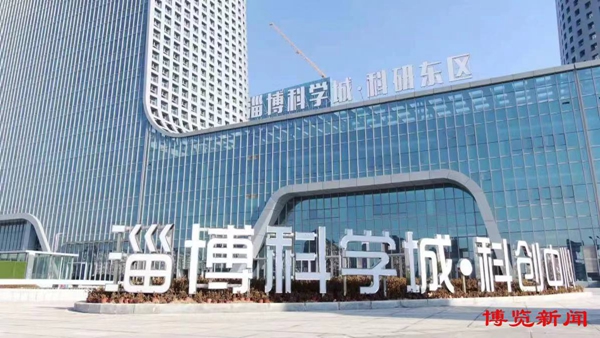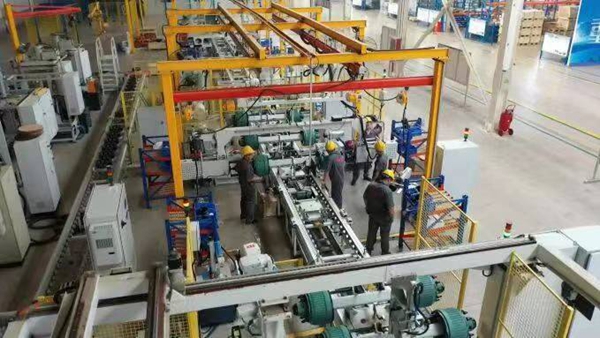

An exterior view of the Zibo Science City [Photo/zbnews.net]
The output value of the high-tech industry above designated size – those with an annual turnover of 20 million yuan ($2.98 million) or more – in Zibo, East China's Shandong province – increased by 24.17 percent year-on-year, according to statistics released by the Shandong Provincial Government. The growth rate ranked second in the province.
The output value of new and high-tech industries above designated size in the city accounted for 49.27 percent of the industrial output value above designated size, which is 2.14 percentage points higher than that of last year.
The strong development of high-tech industries can be attributed to the improvement of both the quantity and quality of the city's science and technology enterprises.
The local government has included a total of 914 enterprises, which includes 584 high-tech enterprises, in the statistical range of the city's high-tech industries' output value. There are 145 more enterprises than the previous year. New economy enterprises in fields such as intelligent connected vehicles, hydrogen energy, the digital economy and intelligent logistics are important sources of the output value of high-tech industries.
Zibo currently has more than 60 high-tech enterprises in the automobile industry.
The intelligent connected vehicles technology innovation center established by Suntae Automobile Co Ltd, Tsinghua University and other research institutes will also attract more upstream and downstream related enterprises.
In the field of hydrogen energy, Dongyue Group Co Ltd has created a whole industrial chain from raw materials for film forming technology and functional technology. It is the only company in China to master this technology. Other local companies such as Shandong Renfeng Special Materials Co Ltd are also at the forefront of the industry.
Zibo has also established a framework to encourage leading organizations to collaborate on key and core technologies, as well as to bring together college institutions, small and medium-sized enterprises, and other stakeholders to construct a systematic and task-oriented innovation union. The industrial agglomeration effect is another advance for the rising output value of high-tech industry.
The national new material high-tech industrialization base, which was set up in 2002, attracted 595 enterprises above designated size and 310 high-tech enterprises by the end of 2021.
The added value of the new material industry in Zibo in 2021 accounted for 32.3 percent of the city's total enterprises above designated size, making it a benchmark for the development of the high-tech industry in the city.
In addition, other innovative industrial clusters like biomedicine and biomedical engineering are also taking the lead and playing exemplary roles.

An interior view of a manufacturing factory in Zibo. [Photo/zbnews.net]